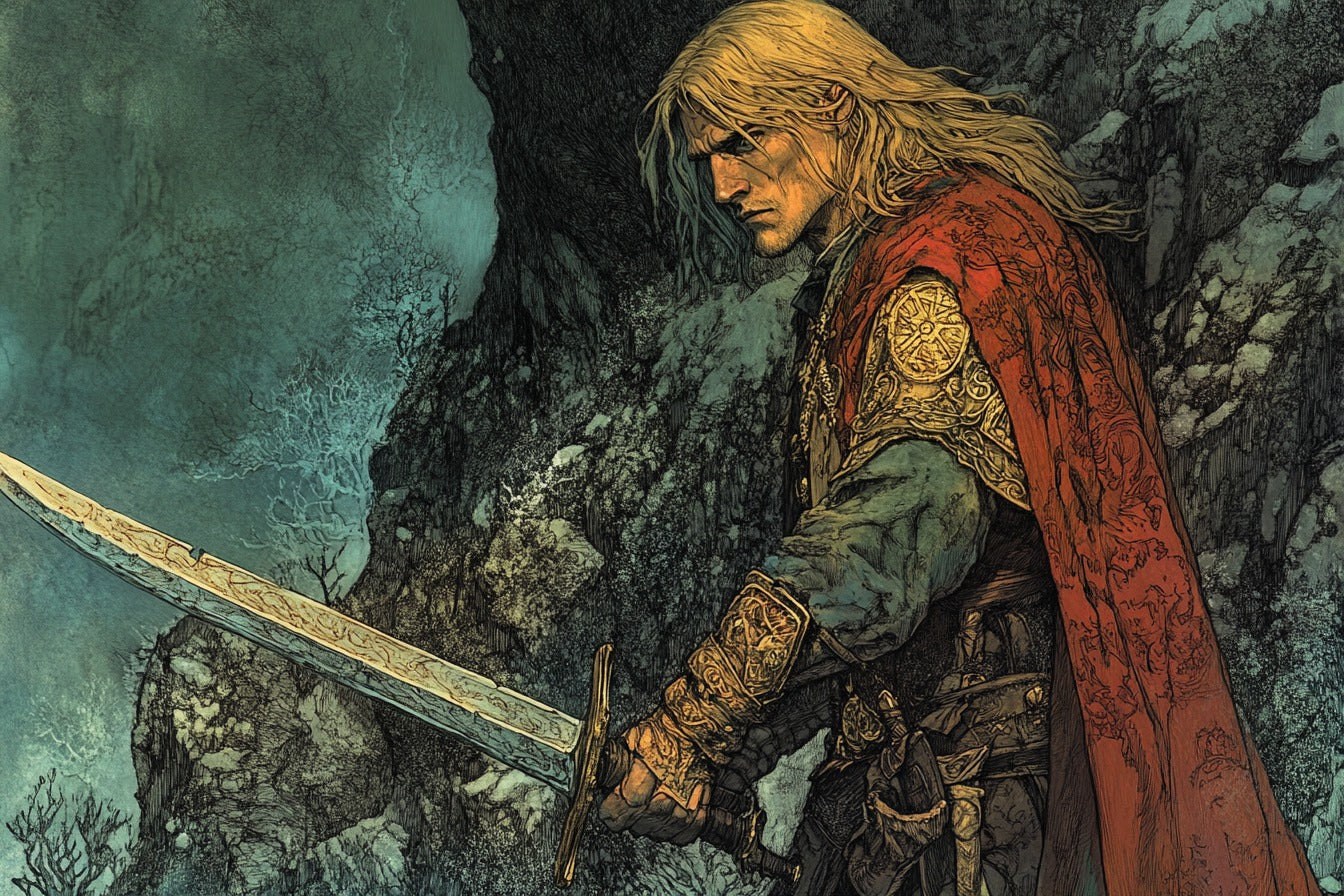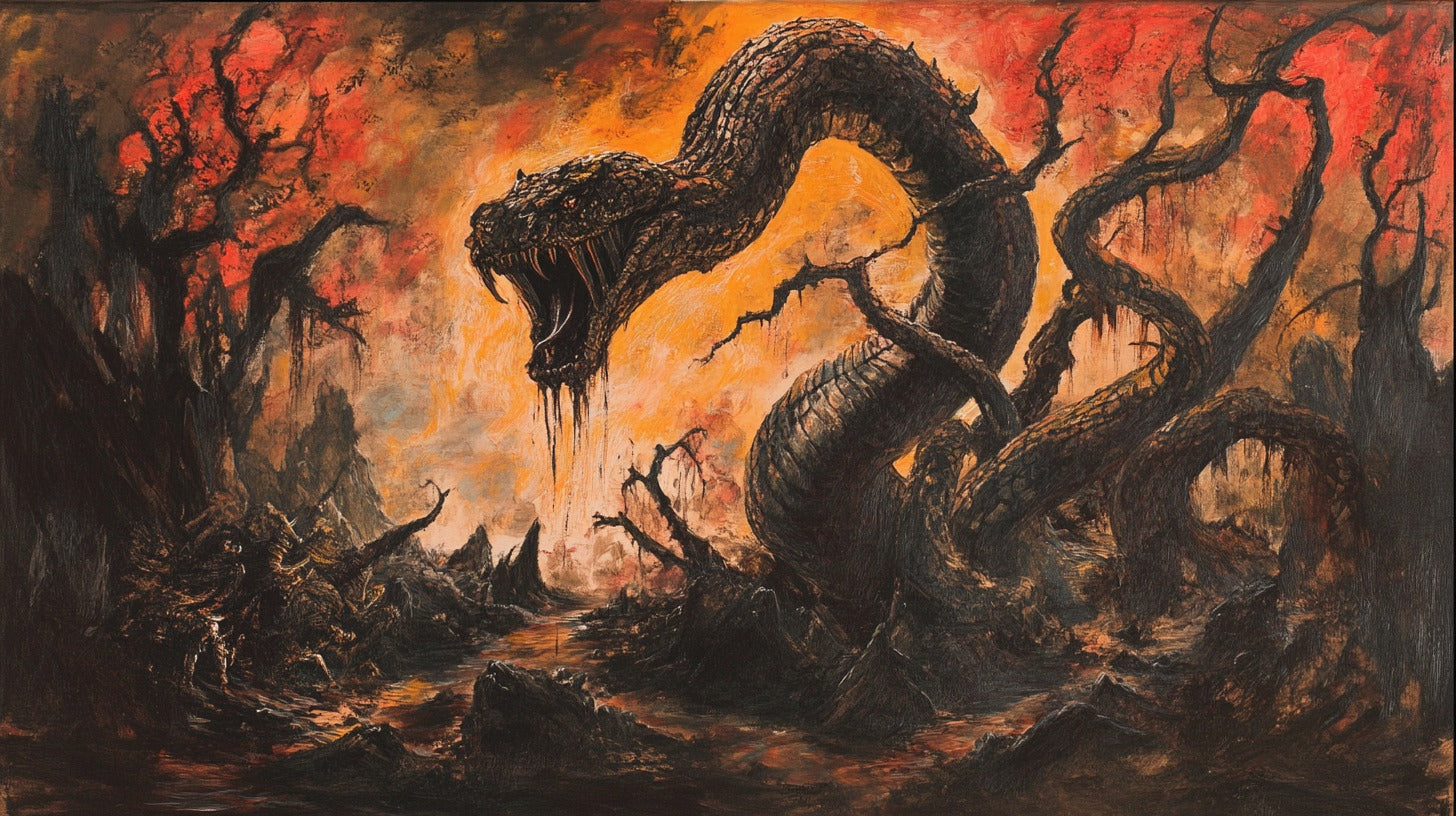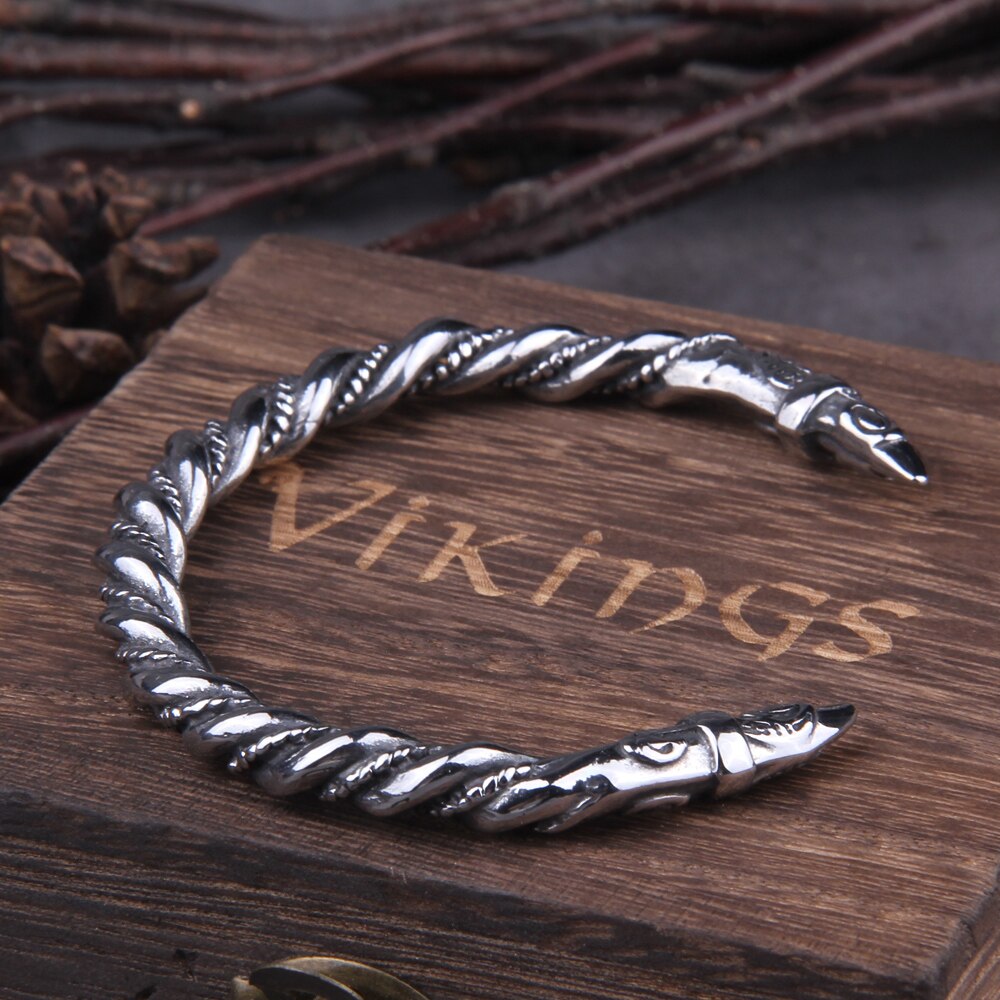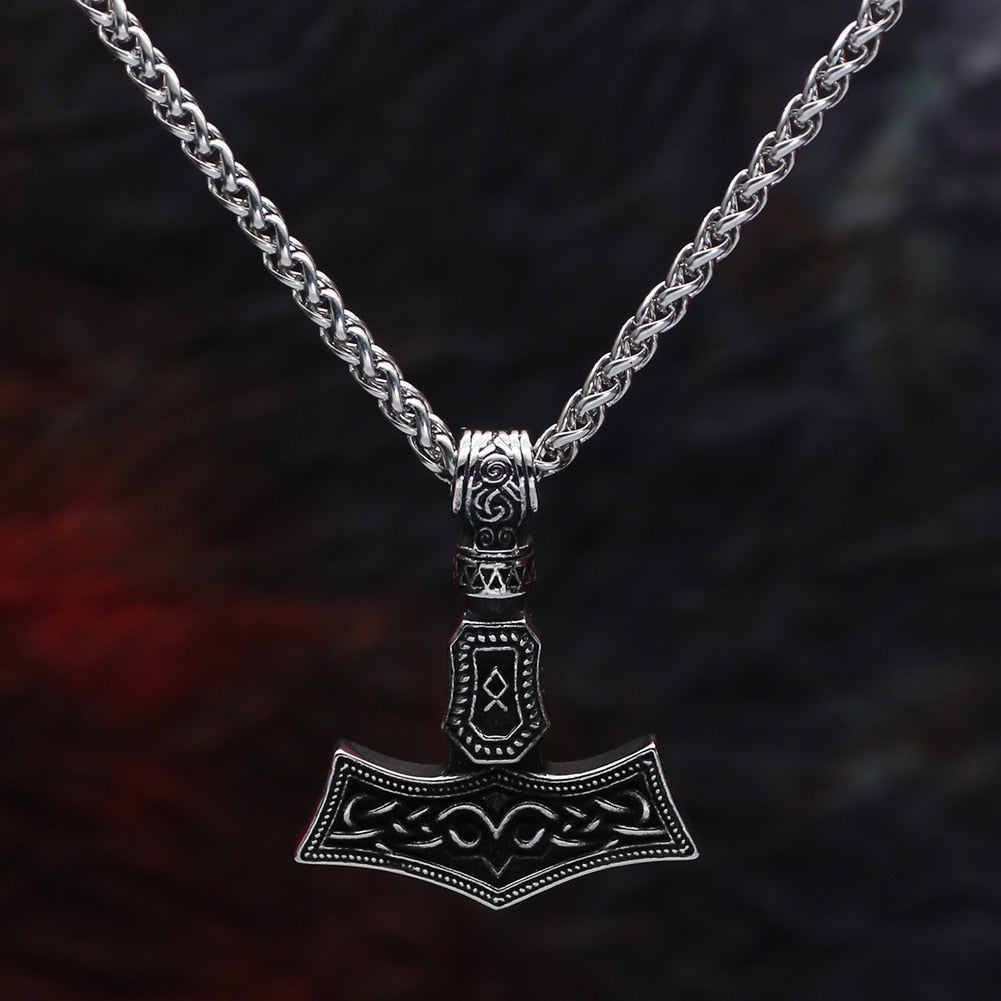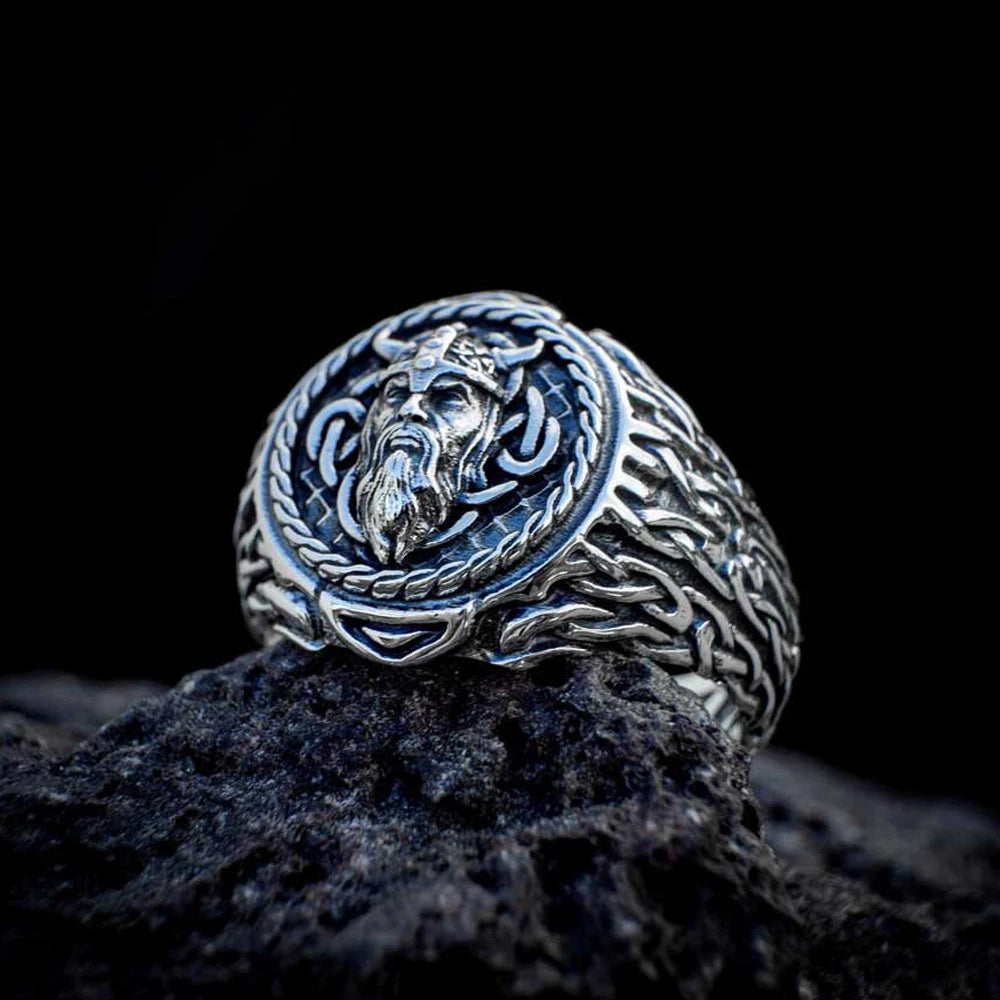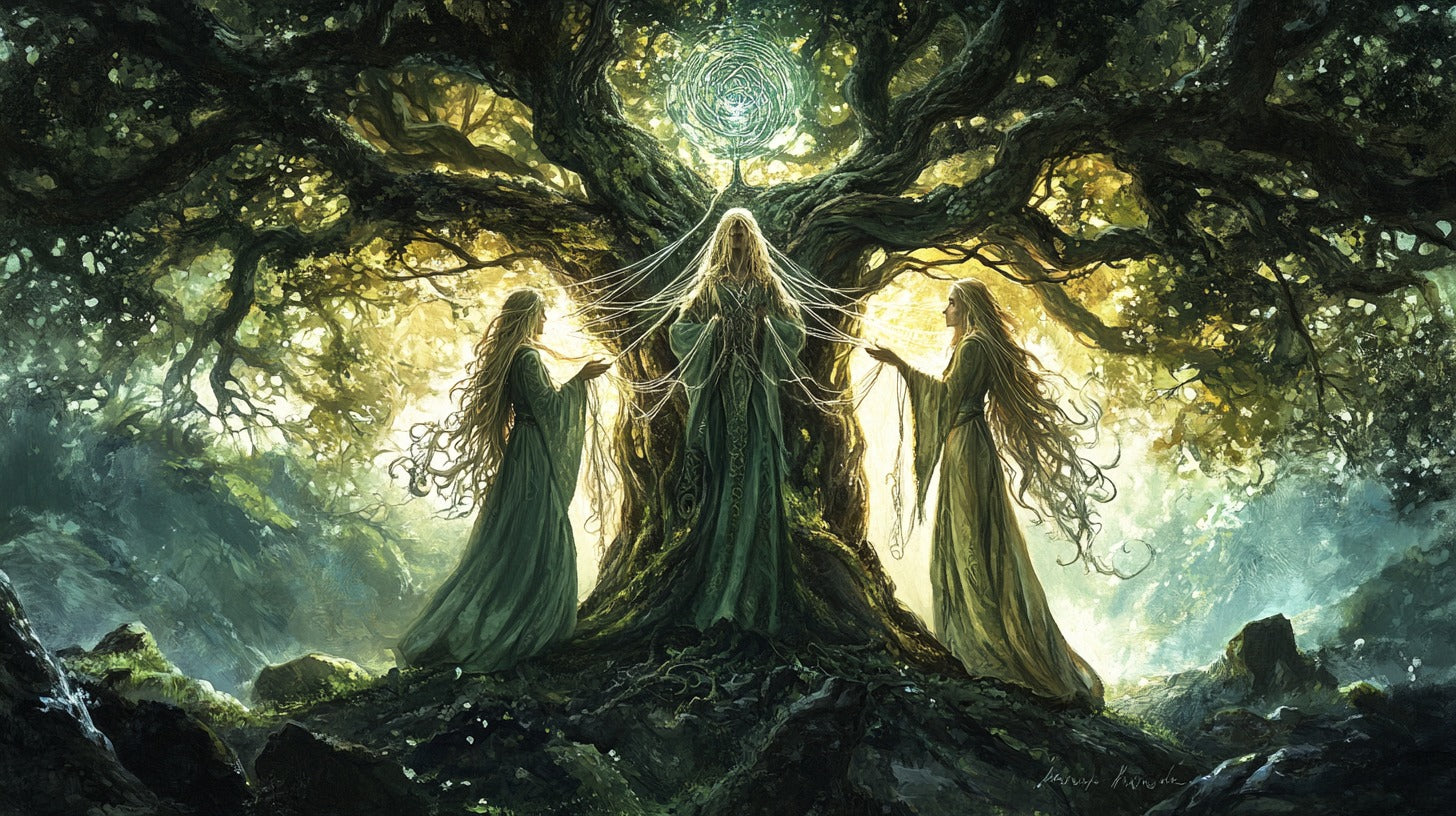
Weavers of Destiny: The Norns in Norse Mythology
At the foot of Yggdrasil, the colossal world tree of Norse legend, sits a well of unfathomable depth and wisdom. Here, three ageless sisters perform their eternal task, spinning the fates of gods and men alike. These are the Norns, the incarnations of time itself, whose whispers echo through the nine worlds. Join us as we unravel the complex tapestry of Norse mythology to reveal the crucial role these enigmatic figures play in the grand narrative of creation and destruction.
Origins and Etymology

Mímer and Balder Consulting the Norns (1821-1822) by H. E. Freund ( Photo: Bloodofox)
The concept of the Norns has its roots in the Proto-Germanic period, predating the Viking Age by several centuries. The Old Norse word "norn" is believed to derive from a word meaning "to twine" or "to twist," reflecting their role in weaving the threads of fate.
Linguists have drawn connections between the word "norn" and other Indo-European languages. For instance, the Greek word "νήθω" (nētho), meaning "to spin," shares a similar etymological root, suggesting a common Indo-European origin for these concepts of fate-weaving entities.
The Three Norns
Urd, whose name means "fate" or "what once was," represents the past. She is often depicted as the eldest of the three Norns and is associated with that which has already occurred and cannot be changed.
Verdandi, whose name translates to "what is happening" or "what is coming into being," embodies the present moment. She represents the ongoing process of creation and transformation.
Skuld, whose name means "what shall be" or "debt," symbolizes the future. She is sometimes depicted as the youngest of the Norns and is associated with that which is yet to come.
Role in Norse Cosmology

Yggdrasil & Celtic Knot Cuff Arm Rings
The Norns play a crucial role in Norse cosmology as the shapers of destiny. They are said to weave the fates of all beings, from the lowliest creature to the mightiest god, including Odin himself. This concept is reflected in various Norse texts, including the Poetic Edda and the Prose Edda.
It's important to note that the Norns are not considered good or evil in the traditional sense. They are viewed as impartial forces of nature, operating beyond moral considerations. Their actions are seen as inevitable and beyond the control of both gods and humans.
The Well of Urd

The Norns are said to dwell at the Well of Urd, located at the base of the world tree Yggdrasil. This well is one of the most important locations in Norse cosmology, serving as a source of wisdom and fate).
According to Norse mythology, the Norns perform daily rituals at the Well of Urd. They draw water from the well and mix it with the sand around it to create a magical clay, which they use to nourish Yggdrasil, ensuring the continued existence of the cosmos.
The Norns and Yggdrasil

Hoddmímis - Norse Pagan Yggdrasil Ring
Caretakers of the World Tree
The Norns' relationship with Yggdrasil is symbiotic. While they derive their power and knowledge from the well at its roots, they also act as caretakers of the tree. Their daily ministrations help to preserve Yggdrasil, which in turn maintains the structure of the Norse universe (Lindow, 2001).
Cosmic Balance
This relationship between the Norns and Yggdrasil underscores the Norse concept of cosmic balance. The Norns' actions ensure the continuation of the world order, even as they weave the fates that will eventually lead to Ragnarök, the prophesied end of the gods (Sturluson, 13th century).
Fate and Free Will
The Concept of Wyrd
Central to understanding the Norns is the Norse concept of wyrd, often translated as "fate" or "destiny." However, wyrd is a more complex idea than simple predestination. It encompasses the interconnectedness of all actions and their consequences.
Implications for Free Will
The existence of the Norns and the concept of wyrd raise intriguing questions about free will in Norse thought. While fate plays a significant role, Norse mythology also emphasizes individual choice and responsibility. This apparent paradox reflects the complex nature of Norse philosophical and religious beliefs.
Comparisons to Other Mythologies
Greek Moirai
The Norns bear striking similarities to the Moirai, or Fates, of Greek mythology. Both are trinities of female entities responsible for weaving the fates of mortals and gods. This parallel suggests a possible common Indo-European origin for these concept.
Roman Parcae
Similarly, the Roman Parcae, also known as the Fates, share characteristics with the Norns. These connections highlight the widespread nature of fate-weaving female entities in various Indo-European mythologies.
Literary and Cultural References
Medieval Literature
The Norns feature prominently in medieval Norse literature, including the Poetic Edda and the Prose Edda, by Snorri Sturlusson. They are also mentioned in various skaldic poems and sagas, underscoring their importance in Norse cultural imagination.
Modern Interpretations
In modern times, the Norns have inspired numerous works of literature, art, and popular culture. From Wagner's opera cycle "Der Ring des Nibelungen" to contemporary fantasy literature and games, the concept of fate-weaving entities continues to captivate audiences.
Conclusion
The Norns stand as one of the most intriguing and influential concepts in Norse mythology. As the weavers of fate, they embody the Norse understanding of destiny, free will, and cosmic order. Their role in maintaining the world tree Yggdrasil highlights the interconnectedness of all things in Norse cosmology.
The enduring fascination with the Norns reflects their relevance to universal human questions about fate, choice, and the nature of existence. As we continue to explore and reinterpret Norse mythology, the Norns remain powerful symbols of the mysterious forces that shape our lives and our world.
Frequently Asked Questions (FAQs)
- Who are the Norns in Norse mythology?
The Norns are three female entities in Norse mythology who weave the fates of gods and mortals. They are named Urd, Verdandi, and Skuld, representing the past, present, and future respectively.
- Where do the Norns live?
According to Norse mythology, the Norns dwell at the Well of Urd, located at the base of the world tree Yggdrasil.
- How do the Norns influence fate?
The Norns weave the threads of fate for all beings, determining the course of their lives and the events that will unfold in the world.
- Are the Norns similar to figures in other mythologies?
Yes, the Norns share similarities with fate-weaving entities in other mythologies, such as the Greek Moirai and the Roman Parcae.
- What is the significance of the Norns in Norse cosmology?
The Norns play a crucial role in maintaining cosmic order by tending to Yggdrasil and weaving the fates that govern the Norse universe, including the eventual occurrence of Ragnarök.
